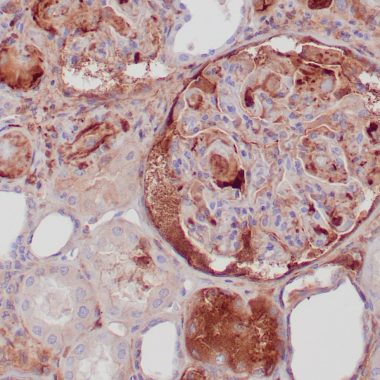Complement component C3 plays a central role in the activation of complement system. Its activation is required for both classical and alternative complement activation pathways. C3d deposition in the renal transplant PTCs (peritubular capillaries) is indicative of AR (acute rejection)with subsequent high probability of graft loss. Anti-C3d, combined with anti-C4d, can be utilized as a tool for diagnosis of AR and warrant prompt and aggressive anti-rejection treatment. It was shown that anti-C3d labeled the epidermal basement membrane in 97% cases of bullous pemphigoid, with none of the normal controls demonstrating such findings. 27% cases of pemphigus vulgaris demonstrate intercellular C3d deposition. Therefore, C3d immunohistochemistry is a helpful adjunct in the diagnosis of bullous pemphigoid(and perhaps pemphigus vulgaris), especially in the cases in which only formalin-fixed, paraffin embedded tissue is available for analysis.

